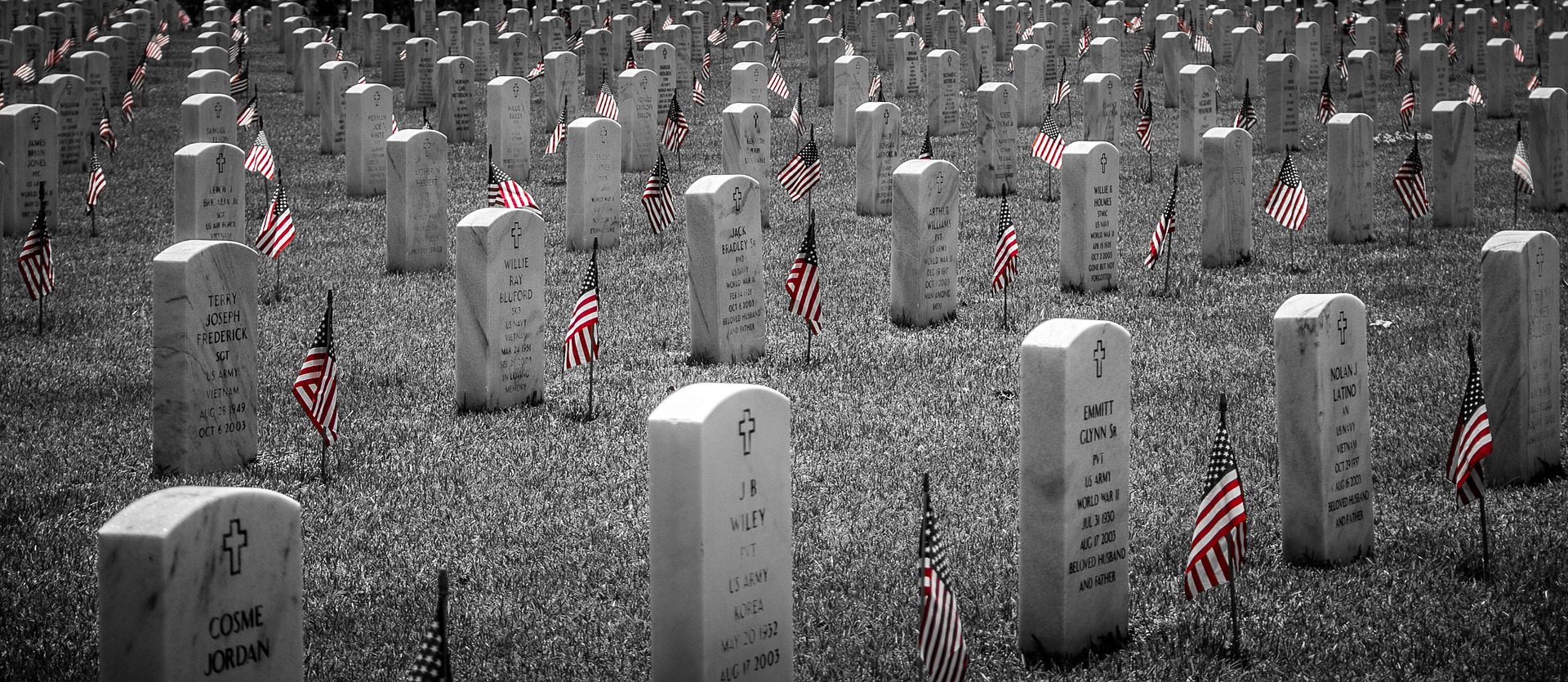
(VisualMemoriesbyJ/Pixabay)
My mental picture of Memorial Day in 1945 is a spare but deeply etched scene of joy and tears. We lived in a New England town of 500 that rustled up enough veterans to march up the main street to the odd strains of a handful of sincere but unrehearsed musicians. Boy Scouts, Girl Scouts, Sunday school regulars and the town selectman fell in line, followed by the volunteer fireman’s truck and, finally, we the townspeople trooped along behind on our way to the cemetery.
There the honor guard from the three services fired their salutes to those who had died in wars, prayers were invoked for the living and the dead, and wreaths and flowers were laid on graves, some of them freshly dug. A heavy silence prevailed over words and ceremonies. Tears of loss mingled with sighs of relief that soon all the killing would stop.
In later years, those impressions grew into a conclusion that the Day (which was set on May 30 until leisure and commerce made it just another three-day weekend, whatever the date) was the greatest anti-war event of the year.
The reason was that it was a time to look and feel the actual price of war. Widows of factory workers in my town had been dealt terrible blows as they stood alone as mothers, bereft of support in a time when women weren’t supposed to work. Parents who’d fancied their sons’ gifts as seeds of bright futures mourned them instead. The tactile nature of death — plain, cold, flat markers at the time — rose above the tributes to heroism and the achievement of grand victories on the world stage. This was personal, crude and lasting, less likely to be justified or elevated to the status of noble sacrifice.
Not that patriotism or satisfaction that their own flesh and blood had helped defeat a satanic force called Nazism wasn’t part of it, with elements of pride, but that in a bigger picture war could seem more monstrous and unacceptable than on any other particular occasion. However much war might be championed as a means of settling accounts, many of those people at the graveyard could be imagined to be as strongly opposed to war as they would ever be.
That was when the draft subjected a great cross-section of young men to the danger of death on the battlefield. Huge numbers of families and friends were therefore drawn into the drama of life and death. By and large, they let their loved ones go in the belief that they were serving a worthy cause and, in theory at least, that they might not come home alive. While most held to those convictions, Memorial Day could be a touchstone for the residue of doubts and questions.
Since the draft disappeared after Vietnam, that possibility has narrowed. Recruits these days are predominantly from the lower income groups and, therefore, the wider public isn’t personally involved. Memorial Day rituals and routines still happen, but the observances appear to me cast more intentionally as honoring the military. There are certainly survivors who still feel the pangs of ambivalence at graveyards at Memorial Day, but what becomes of the promptings of skepticism, dissent and changes-of-heart?
Though loud attacks from both sides of the cultural and political divides blast us every day, the private musings of most of us remain hidden from those around us. If Memorial Day stirs misgivings, we’re probably less likely to hear about them. Individuals built walls, out of fear, and individualism has unfortunately become the code word for adulthood. Private views about public issues like war are largely kept to ourselves and, therefore, are less apt to coalesce with similar views to build consensus.
Since Memorial Day has become just another one of those special holidays tagged on to a weekend, not much should be expected from it. But if it has become little more than a toasting of military prowess, too noisy and swamped by tributes to war, then its value as a day when it could be okay to find palpable reasons to question war would be sadly forsaken.
[Ken Briggs reported on religion for Newsday and The New York Times, has contributed articles to many publications, written four books, and is an instructor at Lafayette College in Easton, Pennsylvania.]
Advertisement








